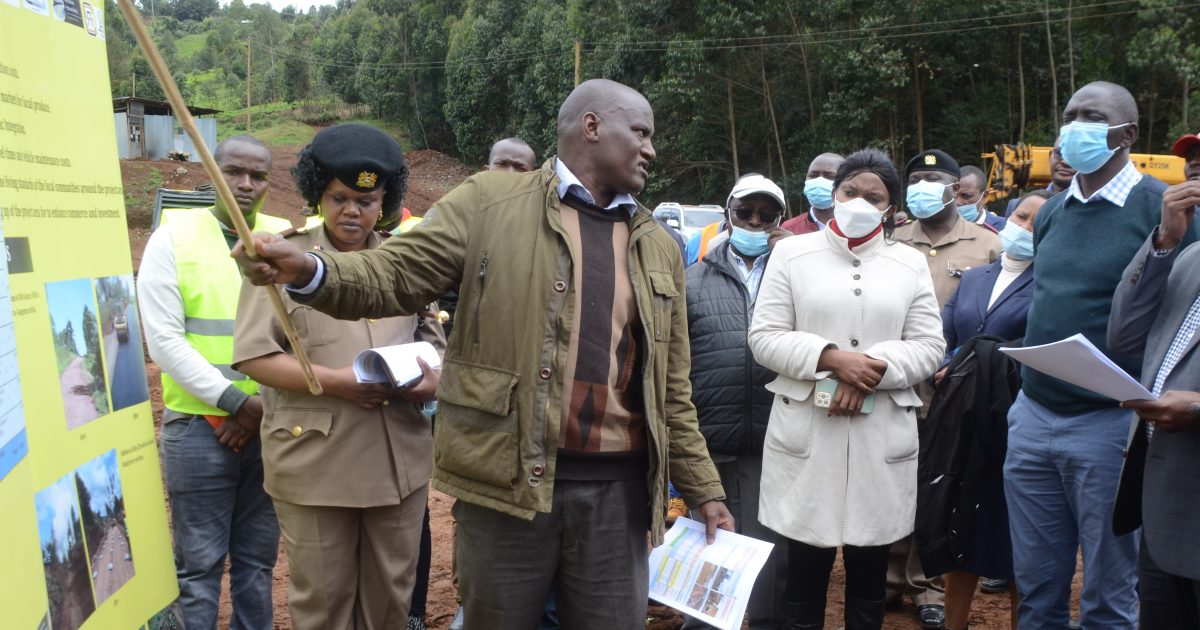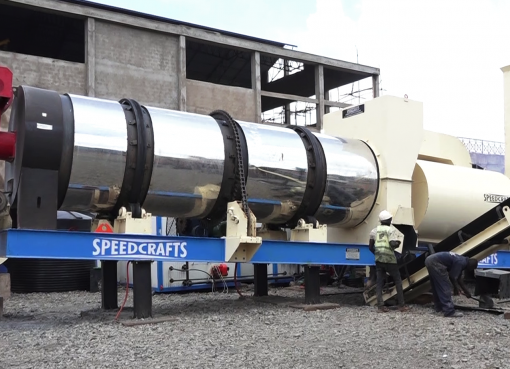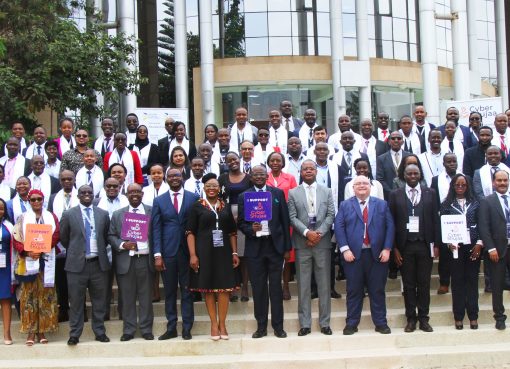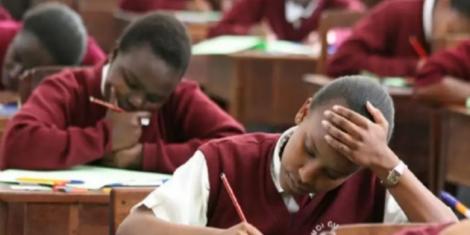Politicizing the high cost of living and starvation currently being experienced in some parts of the country will not give a solution, Government Spokesperson Col. (Rtd.) Cyrus Oguna has said.
Speaking when visiting and inspecting various projects in Murang’a, Wednesday, Oguna said the high cost of living cannot be blamed on a particular individual, stating that the hardship situation is due to combination of factors.
For instance, many parts of the country have experienced drought for about two to three years, thus causing low production of food.
Oguna also added, “Apart from drought, locusts also ravaged crops in farms, leading to poor yields and this greatly occasioned high prices for food stuffs.
The Covid-19 pandemic and global factors are equally to blame for increased prices of basic commodities.
“It’s therefore simplistic for one to accuse the government of the high cost of living, instead of telling citizens the real situation and even giving solutions where possible,” he said.
However, according to Oguna, the government has devised various interventions to lower the cost of living and provide food to those facing hunger.
He affirmed that 23 counties are facing acute shortage of food, saying the government is currently distributing food to about 3. 5 million hunger stricken Kenyans.
The Government Spokesperson disclosed that the programme of giving money to the affected citizens has been halted after it faced various challenges in transferring the cash.
“The government had adopted a mobile money transfer programme to those faced with hunger, but since some people gave wrong personal details, the programme faced numerous challenges, thus we opted to revert to physical food distribution,” he added.
He further said the government is also providing animal feeds and water in some of the areas affected by drought.
“The government has also come-up with another intervention to help livestock farmers, where animals which are highly affected by drought are bought, slaughtered and the meat given to people.
Additionally, there is a commercial livestock offtake programme, where the government buys animals, which are still in good condition and taken to the Kenya meat Commission (KMC), which sells processed meat back to the government and distributes to people,” Oguna explained.
Oguna said apart from short term interventions, the government is currently doing long term projects, to ensure that whenever there is drought, there is sufficient adaptation, sustenance and resilience, to ensure people overcome the challenges without requesting for relief food.
“The dams being constructed in different parts of the country are meant to provide water for irrigation. Food production in areas marred with conflicts is very low so bringing peace will ensure more food production,” he added.
By Bernard Munyao and Florence Kinyua





